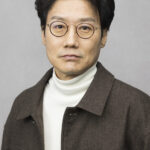Doctors and dietitians are raising major concerns over an eating condition they're calling "orthorexia" – an extreme, obsession with eating only healthy foods.
The term orthorexia was first used over 25 years ago in 1997 by Dr. Steven Bratman to label the strict eating habits of people who cut things out of their diet, experience malnutrition, and limit their foods based on quality. Unlike bulimia or anorexia, which involve issues with food quantity, this condition is an unhealthy obsession with only eating healthy organic foods.
Orthorexia nervosa is not officially listed as a clinical diagnosis in the current Diagnostic and Statistical Manual of Mental Disorders (DSM-5-TR).
People with orthorexia may cut out entire food groups, skip meals with friends, and experience significant stress or guilt about food quality, according to a 2022 paper in the Eating and Weight Disorders journal. People with this condition may refuse to eat anything they haven't cooked themselves, leading to excessive weight loss from cutting out so many foods.
Canadian therapist Nilou Emaelipour told Forbes Health that orthorexia tends to affect athletes, health professionals, those struggling with anxiety or OCD, and individuals who've battled eating disorders in the past. Major warning signs can include an excessive fixation on the nutritional breakdown of every single food item, an unyielding refusal to eat anything deemed "unhealthy," and intense feelings of guilt or shame.
Emaeilpour suggests a combination of psychotherapy, cognitive-behavioral techniques, and nutritional counseling to deal with orthorexia. Her advice is for people to seek out an eating disorder specialist, surround themselves with a supportive, criticism-free environment, and find enjoyable activities unrelated to food.
As clean eating keeps gaining traction, medical professionals stress the need to recognize orthorexia's risks and potential dangers. The key is striking a balanced, non-obsessive approach to healthy eating habits for overall wellness.

 Record heat wave killed half of this Alaska bird population, and they aren’t recovering
Record heat wave killed half of this Alaska bird population, and they aren’t recovering
 China's CATL to seek Hong Kong listing
China's CATL to seek Hong Kong listing
 Holiday shoppers increased spending by 3.8% despite higher prices
Holiday shoppers increased spending by 3.8% despite higher prices
 Russia declares federal emergency over Black Sea oil spill
Russia declares federal emergency over Black Sea oil spill
 Iowa WWII veteran known as 'The Drummer' shares gift of music this holiday season
Iowa WWII veteran known as 'The Drummer' shares gift of music this holiday season
 US sex-abuse watchdog fires investigator after learning of his arrest for stealing drug money
US sex-abuse watchdog fires investigator after learning of his arrest for stealing drug money
 Hwang Dong-hyuk on killing off his 'Squid Game' characters and wanting to work with Jake Gyllenhaal
Hwang Dong-hyuk on killing off his 'Squid Game' characters and wanting to work with Jake Gyllenhaal
 Getty
Getty






